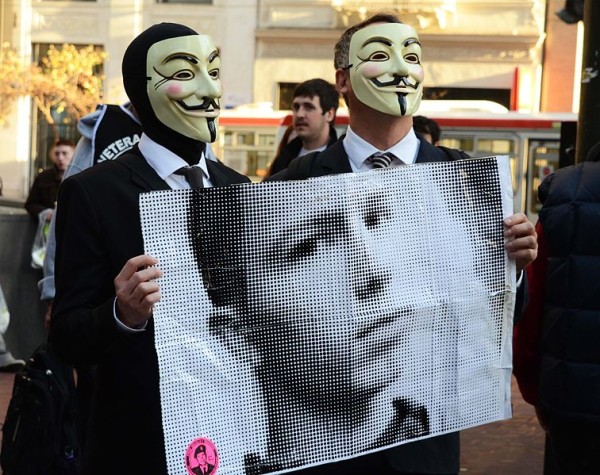Last week, the New York Times editorial board thrilled government transparency advocates worldwide when they released an article calling on President Obama to grant clemency to Edward Snowden. They declare him a whistleblower loud and clear in the article’s title, and detail the NSA’s legal and ethical violations which Mr. Snowden uncovered.
Firedoglake’s Kevin Gosztola, who reported on PVT Manning’s trial last summer, praised the NYT for its support of Snowden while challenging them on another point “If Snowden is a whistleblower, what is Chelsea Manning?” This summer the NYT’s editorial board called Manning’s 35 year-sentence “excessive”, but they stopped short of calling her a whistleblower.
There are close parallels in the stories of Snowden and Manning as detailed on Gosztola’s blog:
Just as the Times makes clear that Snowden could not have gone through ‘proper channels,’ it would have been impossible for Manning as well… Had she sent specific documents in the sets to get the attention of members of Congress or had she gone to superiors within the military and said this should not be secret, she most certainly would have lost her security clearance…
Six bullet points on violations Snowden revealed and legal actions he provoked are offered by the Times editors to further advance the argument that he is a whistleblower. Certainly, the same could be done for Manning:
- Manning revealed a video of a 2007 Apache helicopter attack, which shows two Reuters journalists being gunned down in Baghdad. The video, which featured soldiers begging superior officers for orders to fire on individuals, was withheld from Reuters, even though the media organization filed a Freedom of Information Act lawsuit.
- Frago 242, which the US and the UK appeared to have adopted as a way of excusing them from having to take responsibility for torture or ill-treatment of Iraqis by Iraqi military or security forces, was revealed in the Iraq War Logs.
- Yemen president Ali Abdullah Saleh agreed to secretly allow US cruise missile or drone attacks that he would say were launched by his government
- Both the administrations of President George W. Bush and President Barack Obama pressured Spain and Germany not to investigate torture authorized by Bush administration officials
- US government was well aware of rampant corruption in the Tunisian ruling family of President Ben Ali and the FBI trained torturers in Egypt’s state security service. The information released by Manning was one of the “small things“ that helped to inspire the Arab Spring
- Al Jazeera journalist Sami al-Hajj was sent to Guantanamo Bay prison “to provide information” on the “al Jazeera news network’s training program, telecommunications equipment and newsgathering operations in Chechnya, Kosovo and Afghanistan, including the network’s acquisition of a video of [Osama bin Laden] and a subsequent interview” of bin Laden, a clear attack on press freedom
- Partly basing its ruling on diplomatic cables Manning released, the European Court of Human Rights (ECHR), the court condemned the CIA for its extraordinary rendition program and found Macedonia had been responsible for the torture and violation of German car salesman Khaled el-Masri’s rights when he was abducted. Macedonia was ordered to pay $78,500 in damages to Masri.
If you’re wondering why government transparency advocates should present a unified front in fighting for whistleblower protections, you have only to look to the words and experiences of these whistleblowers themselves. While Snowden flees persecution by the same administration and same set of laws that were used to imprison Chelsea, he has clearly stated that ”Manning was a classic whistleblower.” She “was inspired by the public good.”










